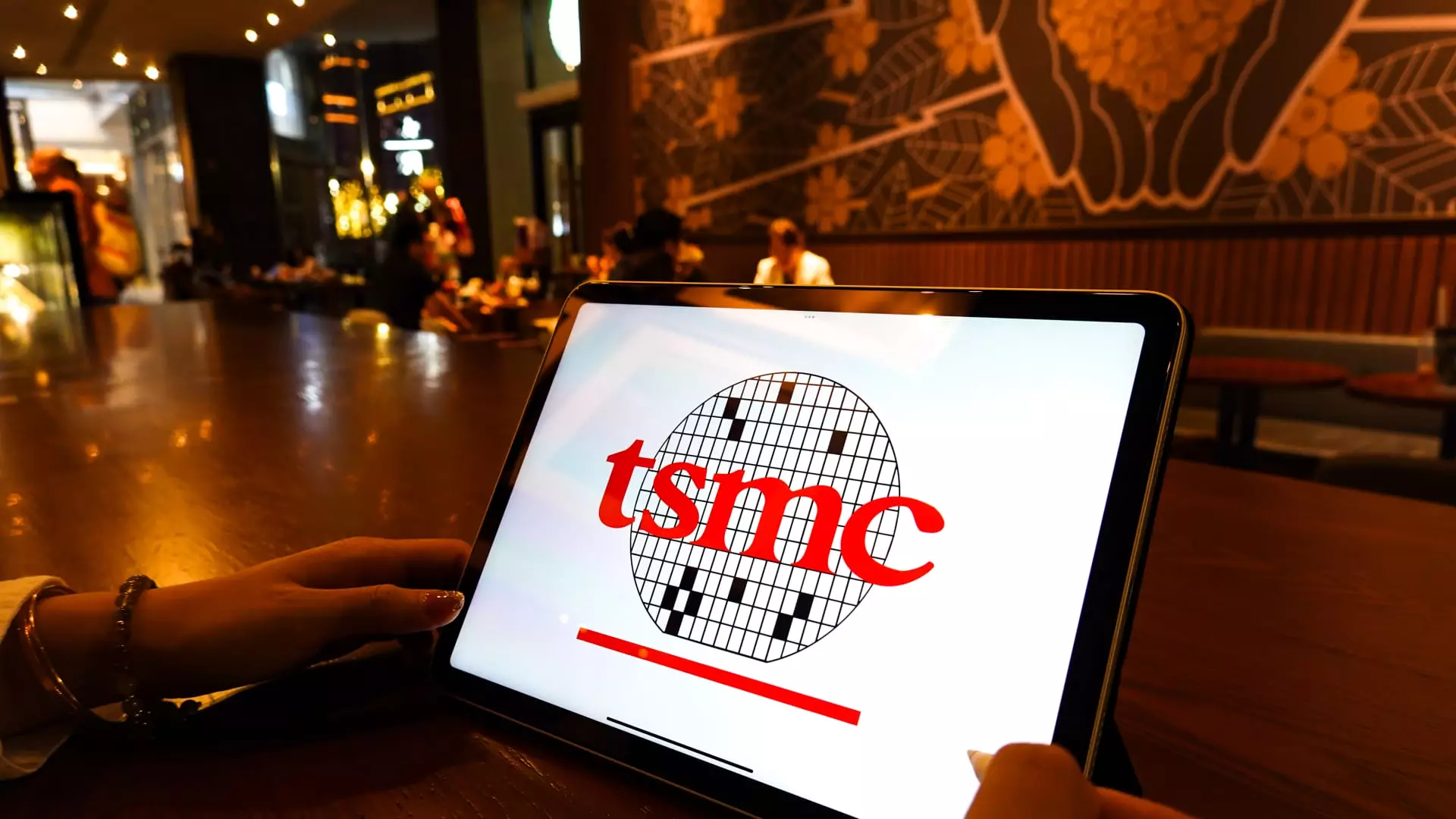In a remarkable display of resilience and growth, the Taiwan Semiconductor Manufacturing Company (TSMC) reported an impressive 54% increase in net profit for the third quarter, demonstrating its strong positioning in the rapidly evolving semiconductor market. The reported net income reached 325.3 billion Taiwanese dollars, equivalent to $10.1 billion, clearly surpassing estimates which projected a profit of 300.2 billion Taiwanese dollars. The continued surge in demand, particularly fueled by the advancements in artificial intelligence (AI), has played a pivotal role in this financial uplift, as TSMC remains central to the production of cutting-edge chips.
The third-quarter performance also saw TSMC’s net revenue skyrocket to $23.5 billion, reflecting a substantial 36% year-on-year growth. More striking was the rise in gross margin, which improved to 57.8% compared to 54.3% in the same timeframe last year. Such figures not only strengthen TSMC’s financial stature but also underscore the company’s critical role in fulfilling the insatiable appetite for semiconductors driven by both consumer electronics and industrial applications.
Looking ahead, TSMC’s forecasts for the last quarter of the year display a bullish outlook. The company estimates that revenues could range between $26.1 billion and $26.9 billion, marking a potential 13% increase sequentially and a striking 35% increase year-on-year at the midpoint. Chief Financial Officer Wendell Huang emphasized during an earnings call that the favorable business outlook was largely supported by the burgeoning demand for advanced smartphone technology and AI-related applications. The company’s expertise in its 3nm and 5nm processes positions it at the forefront of the semiconductor industry, providing critical support to leading tech firms such as Apple and Nvidia.
TSMC’s Chairman and CEO, C.C. Wei, highlighted the transformative impact of AI on the semiconductor sector, asserting that the growing demand is both “real” and widespread. The company’s engagement with major AI innovators further fuels its growth, suggesting that collaborations across the tech landscape could yield even more robust demand for TSMC’s products.
In tandem with its impressive revenue and profit growth, TSMC is also ramping up its capital expenditures, projected to exceed $30 billion this year. The company’s third-quarter capital expenditures showed a slight increase to $6.4 billion, further reaffirming its commitment to maintaining its leadership in semiconductor fabrication. This financial muscle enables TSMC not only to enhance its existing infrastructure but also to explore new capabilities and territories.
The ambitious global expansion strategy includes a massive investment of $65 billion to set up three advanced chip manufacturing plants in Arizona, aimed at meeting the escalating U.S. demand for semiconductors. Additionally, TSMC inaugurated its first factory in Japan earlier this year, signaling its intention to diversify production capabilities and mitigate geopolitical risks.
Despite TSMC’s robust performance, the broader semiconductor market is not without its uncertainties. The recent forecast by Netherlands-based ASML, a key supplier to TSMC, which suggested lower-than-expected net sales, has raised questions among market participants regarding the sustainability of the ongoing AI boom. Concerns regarding the effective return on increasing investments in technology have emerged, particularly amid the ever-evolving landscape of advanced language models and AI applications.
Young Liu, the CEO and chairman of Foxconn, echoed these sentiments, predicting that the current AI frenzy may require further maturation as technological advancements continue to unfold. As the industry grapples with these dynamics, TSMC’s ability to adapt to market changes while capitalizing on strategic relationships with AI developers positions it strongly, albeit within a complex and occasionally volatile environment.
TSMC’s latest quarter highlights not only its financial prowess but also its vital role in the semiconductor industry amid the AI revolution. However, as the company looks to further expand its global footprint and respond to an evolving market landscape, the coming months will be critical in determining the sustained impact of AI on the technology ecosystem as a whole.

Leave a Reply